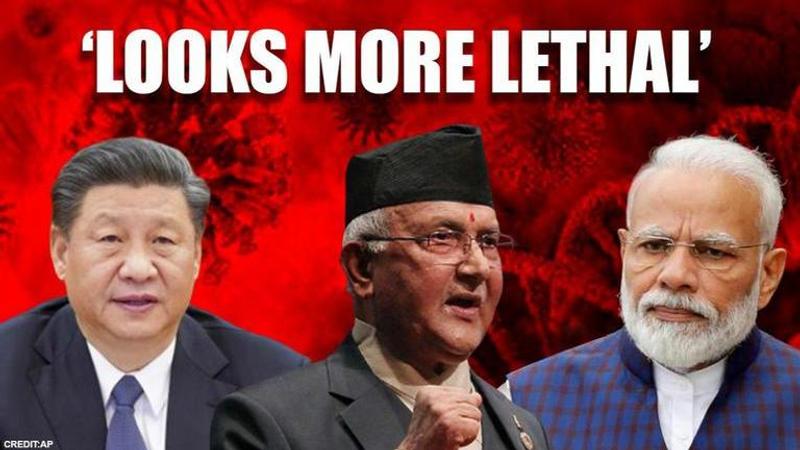Published 07:47 IST, May 21st 2020
Nepal's PM blames India for spreading COVID, says 'Indian virus more lethal than Chinese'
Nepal's PM KP Oli has blamed India for the spread of the Novel Coronavirus in his country. He claimed that Indian virus is more lethal than Chinese, Italian.

Amid tensions mounting with China along the LAC, and a controversy over Nepal's new political map, now Prime Minister KP Oli has blamed India for the spread of the novel Coronavirus in his country. This comes immediately after he defended Nepal's new political map that includes part of India as its territory. He claimed that the virus from India is more 'lethal' than that from China; and this even though just days earlier, 123 countries had overwhelmed China's clout and forced WHO to agree to a comprehensive evaluation to the origins of the COVID-19 virus.
In a speech in parliament, Oli said: "Those who are coming from India through illegal channels are spreading the virus in the country and some local representatives and party leaders are responsible for bringing in people from India without proper testing. It has become very difficult to contain COVID-19 due to the flow of people from outside. Indian virus looks more lethal than Chinese and Italian now. More are getting infected," said the Nepal PM.
Nepal's new map
Even as Nepal's foreign minister Pradeep Kumar Gyawali said that efforts were on to resolve the border issue with India through diplomatic initiatives, the country issued an official map showing Lipulekh, Kalapani and Limpiyadhura under its territory. Oli reiterated that Nepal will claim Limpiyadhura, Lipulekh, and Kalapanias through 'diplomatic efforts'. Earlier, the country's president Bidhya Bhandarialso said that these parts belong to Nepal and appropriate diplomatic measures will be adopted to resolve the existing issues with India.
Nepalese media quoted an official at the Ministry of Land Reform and Management as saying: "The new map was drawn on the basis of the Sugauli Treaty of 1816 signed between Nepal and then the British India government and other relevant documents, which suggests Limpiyadhura, from where the Kali river originated, is Nepal’s border with India."
MEA rejects Nepal's claims
As the new political map created commotion in New Delhi amid mounting tensions with China along the LAC, the Ministry of External Affairs slammed this "unilateral act". Maintaining that this move was not based on historical facts and evidence, MEA official spokesperson Anurag Srivastava observed that this was contrary to the understanding between the two countries to resolve boundary disputes through dialogue. He made it clear that India shall not accept such an "artificial enlargement" of territory. Thereafter, he urged the Nepal government to respect India's consistent position on this matter. Srivastava expressed hope that the Nepalese leadership would create a positive dialogue to resolve boundary issues.
Recent row between India and Nepal
India and Nepal are at loggerheads after India issued a new political map incorporating Kalapani and Lipulekh on its side of the border in October last year. The tension further escalated after India inaugurated a road link connecting Kailash Mansarovar, the holy pilgrimage site situated at Tibet, China, that passes through the territory that Nepal claims. The 80-km new road inaugurated by Defence Minister Rajnath Singh earlier this month is expected to help pilgrims visiting Kailash-Mansarovar in Tibet in China as it is around 90 kms from the Lipulekh pass. India's Ministry of External Affairs (MEA) had said the road going through Uttarakhand's Pithoragarh district "lies completely within the territory of India".
After the new road was inaugurated on May 8 connecting the Lipulekh pass in Uttarakhand with Kailash Mansarovar route in China, Nepal had protested and said it is also considering putting up a security post in the area. Nepal's foreign minister also summoned the Indian Ambassador Vinay Mohan Kwatra and handed over a diplomatic note to him to protest against the construction of the key road.
Updated 08:31 IST, May 21st 2020




